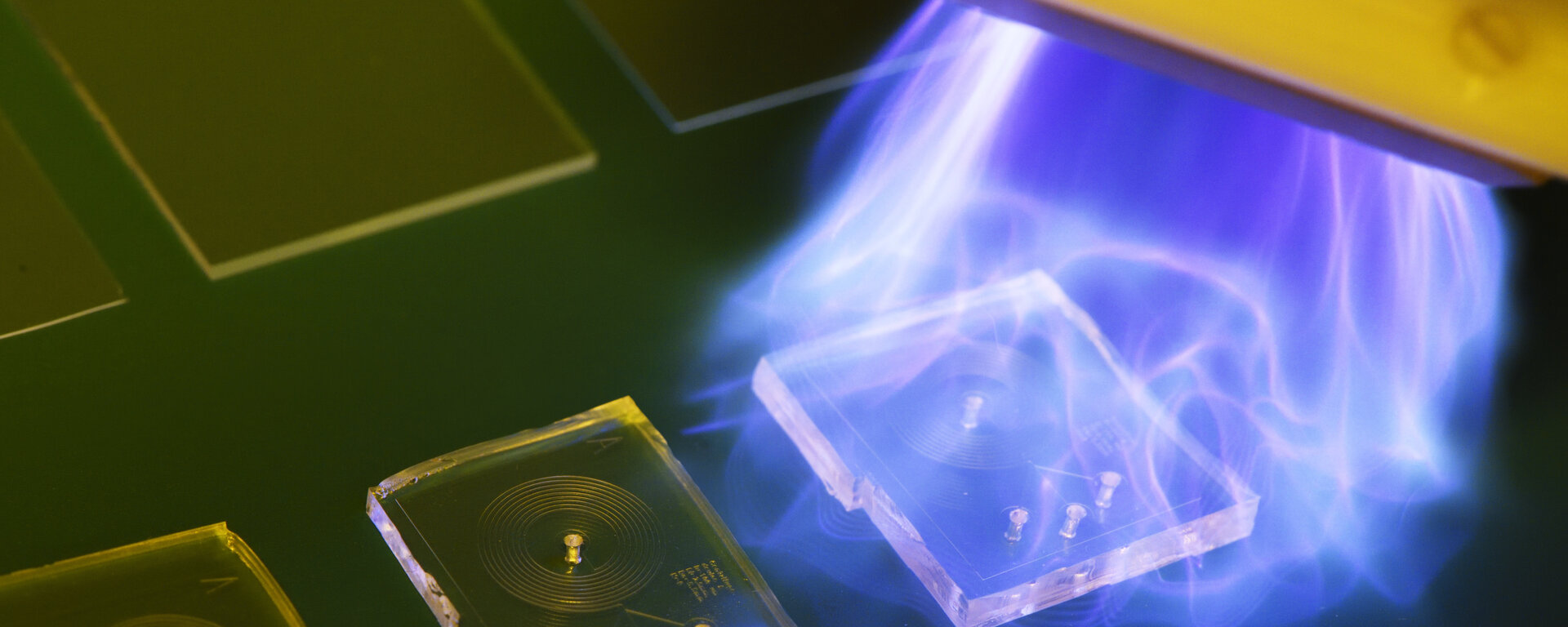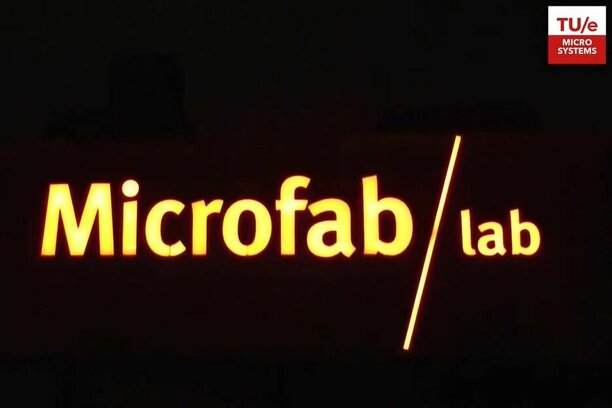Microfab/Lab
The Microfab/Lab facilitates the development of new micromanufacturing technologies for use in life sciences applications.
Unique laboratory for micromanufacturing
The ability to design and make devices and systems with microscopic features is important for enabling many novel applications. An important application domain is formed by the life sciences: here, devices that contain tiny fluidic channels and chambers allow for precisely studying the behavior of cells and tissues as they would function in our own bodies: we can understand how cancer cells spread in the body to form metastasis, what happens with networks of brain cells when someone has an epileptic seizure, or how kidney diseases develop. In the Microfab/lab, we develop these “Organ-on-Chip: devices. Another medical project develops small chips in which diagnostic analysis can be done with just a few drops of blood, and within minutes.
But many more projects, in other application domains, run in the lab. Revolutionary computing chips are being developed, based on all-organic materials, inspired by how our brains work. Novel tiny actuators are being manufactured for future lithography machines, or to realize self-cleaning surfaces. And scientists are working on novel fast and full-color electronic paper, that would make it possible to create the next generation of e-reader. All these projects are enables by the unique micromanufacturing infrastructure of the Microfab/lab.
Unique combination of technologies
Many research institutions have a production facility that specializes in a single technology. Here, by contrast, various technologies are present at a single location, ranging from a cleanroom for lithography to sophisticated 3D printers, and from laser manufacturing to a room designed for working with biological cells. This combination makes the Microfab/Lab unique and enables an otherwise difficult feature: combining technical manufacturing processes with biochemical steps.
As an example, in a cleanroom, channels can be etched on a chip prior to carrying out a surface treatment that enables cell growth. This is uniquely possible in the Microfab/Lab. In this dynamic environment, permanent equipment is complemented by the flexibility to adapt facilities to suit new research directions.
Cross-fertilization
The researchers working here on their projects come mainly from the departments of Mechanical Engineering, Biomedical Engineering, and Chemical Engineering and Chemistry. Various disciplines come together under one roof, encouraging cross-fertilization and innovation. The Microfab/Lab cooperates closely with other laboratories at TU/e, such as the ICMS Molecular Analysis Laboratory and the Laboratory for Cell & Tissue Engineering. The laboratory accommodates research conducted in cooperation with external research partners. TU/e researchers cooperate here with companies such as ASML, Bionchip, MA3 Solutions, Philips and Synapse. Also with research institutions such as Leiden University Medical Center, the hDMT and TNO. Interested parties should contact Irene Dobbelaer.

Visit our other state-of-the-art labs and facilities
Contact us
-
Irene Dobbelaer
